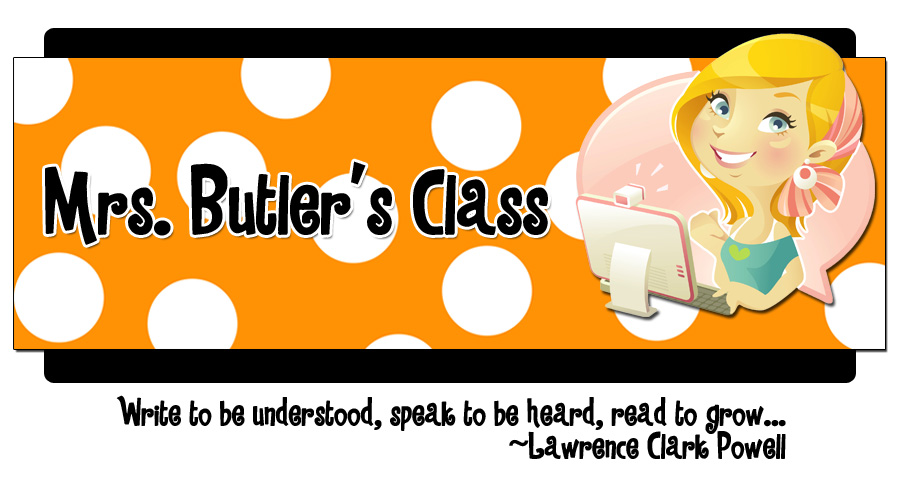Friday:
1. Table Setting Quiz
2. Finish Pay it Forward.
Begin Chapter 9, The Interview Process
Resume (p.268)
Monday, March, 29- Thursday, April 1st.
Monday: Interview Process continued. How to prepare for job interview: Handshake, attire
Resume (p. 268)
Tuesday & Wed.: Cover Letter p. 304
Thank you letter p. 294.
Computer Lab
Thursday: Career personality test. Computer Lab
Prepare interview questions for each other, tape interviews using computers, cameras.
Thursday, March 25, 2010
Tuesday, March 23, 2010
Tuesday, March 23
Appearance Etiquette
Body Language Etiquette
Sidewalk Etiquette
Bizarre Foods-Andrew Zimmern
Japanese Etiquette
Chopstick Etiquette
*Pay It Forward.
Body Language Etiquette
Sidewalk Etiquette
Bizarre Foods-Andrew Zimmern
Japanese Etiquette
Chopstick Etiquette
*Pay It Forward.
Monday, March 22, 2010
Manners and Etiquette, March 22nd
We are beginning Manners and Etiquette.
1. Kanye West and his bad manners
2. Manners quizzes
3. Overview of common etiquette situations, and manners.
Dinner etiquette,Phone etiquette, etc.
1. Kanye West and his bad manners
2. Manners quizzes
3. Overview of common etiquette situations, and manners.
Dinner etiquette,Phone etiquette, etc.
Monday, March 8, 2010
Monday, March 1, 2010
Monday, March 1st continued....
I'm out sick :(
Here's what we're doing....
You will need 2 sources. Make sure you write down these sources (where you got your info. from.)
What makes a great speaker?
1. Prepared-paper is ready, note cards are ready.
2. Speaker is familiar with note cards, knows what order they're in, knows how to pronounce words, etc.
3. Speaker is comfortable at podium, or feels comfortable to walk around during speech.
4. Good eye contact with audience. We don't look at the top of their head.
5. Good voice (catches your attention, not monotone.)
6. Humor or comedy lightens up the room
7. Good attention getter (gets the audience involved!)
8. Speaker is familiar with their OWN speech, knows the information, has memorized or become very familiar with order of the speech, where they will say next.
9. Lack of filler words. (If you need to say "um," just pause.)
10. Speaker keeps audience involved, entertained.
11. Great ending, makes the audience think, "WOW!"
Once students are finished writing these down, they need to take their notes from Friday, and begin researching in the computer lab.
3rd floor, Art wing (old G hall.) Justin Clumpner should have this unlocked and ready for them. If there's not enough computers, they can share. If they need to print something off, they need to copy it onto a word document and then print.
Here's what we're doing....
You will need 2 sources. Make sure you write down these sources (where you got your info. from.)
What makes a great speaker?
1. Prepared-paper is ready, note cards are ready.
2. Speaker is familiar with note cards, knows what order they're in, knows how to pronounce words, etc.
3. Speaker is comfortable at podium, or feels comfortable to walk around during speech.
4. Good eye contact with audience. We don't look at the top of their head.
5. Good voice (catches your attention, not monotone.)
6. Humor or comedy lightens up the room
7. Good attention getter (gets the audience involved!)
8. Speaker is familiar with their OWN speech, knows the information, has memorized or become very familiar with order of the speech, where they will say next.
9. Lack of filler words. (If you need to say "um," just pause.)
10. Speaker keeps audience involved, entertained.
11. Great ending, makes the audience think, "WOW!"
Once students are finished writing these down, they need to take their notes from Friday, and begin researching in the computer lab.
3rd floor, Art wing (old G hall.) Justin Clumpner should have this unlocked and ready for them. If there's not enough computers, they can share. If they need to print something off, they need to copy it onto a word document and then print.
Subscribe to:
Comments (Atom)
